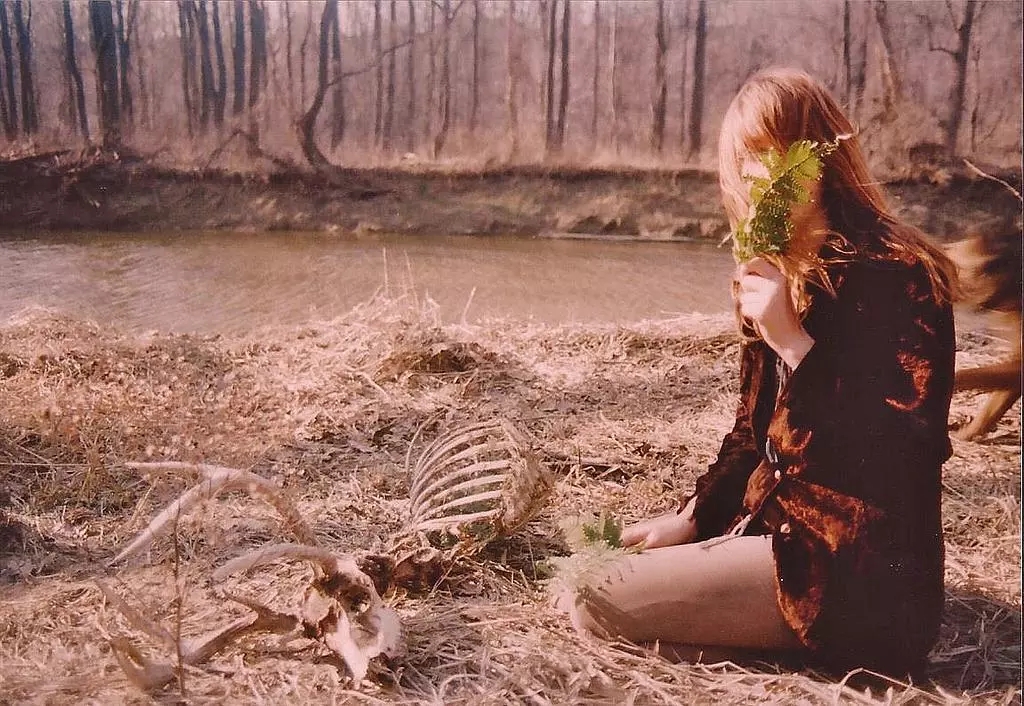
在学童中间
1.
我边走边问,打从长教室穿过,
和蔼的白头巾老修女回答问题,
孩子们学做算术,练习唱歌,
学习各样的读本、各种的历史、
剪裁和缝纫都要求干净利索,
样式最好又时新——孩子们时不时
出于好奇心,免不了抬眼注目
一位六十岁含笑的头面人物。
2.
我冥想一个丽达那样的身影
俯就奄奄的炉火,她讲起童年
一次受严厉的责备或一件小事情
竟然在童心上造成悲剧的一天——
这一讲使我们两个年轻的心灵
像出于同情而融进了一单个空间,
或者,改一下柏拉图有名的妙譬,
化作了蛋黄与蛋白,浑成一体。
3.
想起了当年那一阵忧伤或愤怒,
我再对这一个那一个小孩子看看,
猜是否她当年也有这样的风度——
因为天鹅的女儿也就会承担
每一份涉水飞禽遗传的禀赋——
也有同样颜色的头发和脸蛋,
这么样一想,我的心就狂蹦乱抖,
她活现在我的面前,变一个毛丫头。
4.
她目前那一副形象飘进了我心里,
难道是十五世纪巧手的塑造,
它两颊深陷,仿佛它只是喝空气,
只是吞够了影子就算吃饱?
我虽然从不是丽达一类的后裔,
也有过美丽的羽毛——够了,好,
逢人最好是用微笑报微笑,表示出
这个老草人过日子挺舒舒服服。
5.
年轻的母亲,膝上抱一个人形
(那是“生殖蜜”泄露给人间的皮囊,
根据了回忆或是“忘药”的决定
一定得睡眠,叫嚷,挣扎着要逃亡),
会怎样看她的儿子,只见人头顶
白茫茫披六十来个冬天的风光,
就认为报偿了生她儿子的痛苦,
愁他入世前途的牵肠挂肚?
6.
柏拉图认为自然不过是水泡
戏弄着事物的幽灵式千变万化图;
坚实的亚里士多德挥舞着桦木条
会鞭打一位王中之王的屁股:
金股骨毕达哥拉斯,无人不晓,
拨弄着琴弓或琴弦就可以算出
哪颗星歌唱的,懒诗神听见的和音:
破布片绑上老杆子吓吓飞禽!
7.
修女和母亲,两类人都崇拜偶像,
可是烛光照亮的尊容并不能
激起哪一位母亲的痴心妄想,
只能使石像或铜像宁息安生。
但它们也叫人心碎——诸多色相,
激情、虔诚、慈爱所熟悉的至尊!
一切至高的光荣所象征的浮华,
对人类事业心自生自长的嘲弄家!
8.
辛劳本身也就是开花、舞蹈,
只要躯体不取悦灵魂而自残,
美也并不产生于抱憾的懊恼,
迷糊的智慧也不出于灯昏夜阑。
果树啊,根柢雄壮的花魁花宝,
你是叶子吗,花朵吗,还是株干?
随音乐摇曳的身体啊,灼亮的眼神!
我们怎能区分舞蹈与跳舞人?
作者 / [爱尔兰] 叶芝
翻译 / 卞之琳
Among School Children
I
I walk through the long schoolroom questioning;
A kind old nun in a white hood replies;
The children learn to cipher and to sing,
To study reading-books and history,
To cut and sew, be neat in everything
In the best modern way—the children's eyes
In momentary wonder stare upon
A sixty-year-old smiling public man.
II
I dream of a Ledaean body, bent
Above a sinking fire, a tale that she
Told of a harsh reproof, or trivial event
That changed some childish day to tragedy—
Told, and it seemed that our two natures blent
Into a sphere from youthful sympathy,
Or else, to alter Plato's parable,
Into the yolk and white of the one shell.
III
And thinking of that fit of grief or rage
I look upon one child or t'other there
And wonder if she stood so at that age—
For even daughters of the swan can share
Something of every paddler's heritage—
And had that colour upon cheek or hair,
And thereupon my heart is driven wild:
She stands before me as a living child.
IV
Her present image floats into the mind—
Did Quattrocento finger fashion it
Hollow of cheek as though it drank the wind
And took a mess of shadows for its meat?
And I though never of Ledaean kind
Had pretty plumage once—enough of that,
Better to smile on all that smile, and show
There is a comfortable kind of old scarecrow.
V
What youthful mother, a shape upon her lap
Honey of generation had betrayed,
And that must sleep, shriek, struggle to escape
As recollection or the drug decide,
Would think her son, did she but see that shape
With sixty or more winters on its head,
A compensation for the pang of his birth,
Or the uncertainty of his setting forth?
VI
Plato thought nature but a spume that plays
Upon a ghostly paradigm of things;
Solider Aristotle played the taws
Upon the bottom of a king of kings;
World-famous golden-thighed Pythagoras
Fingered upon a fiddle-stick or strings
What a star sang and careless Muses heard:
Old clothes upon old sticks to scare a bird.
VII
Both nuns and mothers worship images,
But those the candles light are not as those
That animate a mother's reveries,
But keep a marble or a bronze repose.
And yet they too break hearts—O Presences
That passion, piety or affection knows,
And that all heavenly glory symbolise—
O self-born mockers of man's enterprise;
VIII
Labour is blossoming or dancing where
The body is not bruised to pleasure soul,
Nor beauty born out of its own despair,
Nor blear-eyed wisdom out of midnight oil.
O chestnut tree, great rooted blossomer,
Are you the leaf, the blossom or the bole?
O body swayed to music, O brightening glance,
How can we know the dancer from the dance?
WILLIAM BUTLER YEATS
在一篇心理学文献里看到引用的叶芝“舞蹈与舞蹈人”的比喻,于是想起这首诗,又在这首诗里看到化用了的柏拉图的比喻。不知道柏拉图又引用了谁的比喻呢?
从比喻这个大家都喜欢的修辞手法的视角,是否也能窥视人类历史呢?
语言已经是一种借此来表达彼的方式,而在语言的内部,我们又乐此不疲地继续用借的方式表达,这本身可能就是对每个层层包裹的灵魂的一种隐喻吧。
这首诗的大部分讲的可能是如何从狭义和广义的童年中孵化出凄风苦雨的人生和波澜壮阔的历史吧。这种回溯让人有推理的快感,但同时充满风险。因为一旦让过去为现在承担太多的责任,人就容易变得虚伪和软弱。所以我极为偏爱诗的最后一节。“躯体不取悦灵魂而自残,美也并不产生于抱憾的懊恼”!抛弃无谓的补偿,戒断幼稚的哀怨,远离一切形式的自欺欺人,才能问心无愧地尽情舞蹈啊。
“辛劳本身也就是开花、舞蹈”,记住这句话并振奋地活下去吧!
荐诗 / 刘宛妮
2018/04/27
题图 / illumination
Published 2018/04/27
Last updated: 2018/04/27

近期评论